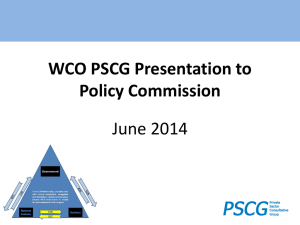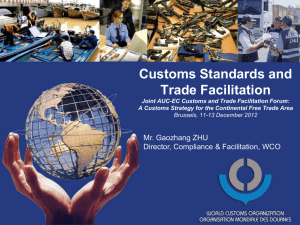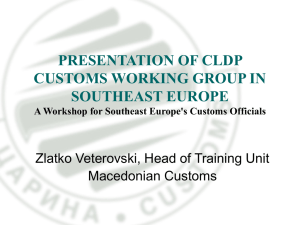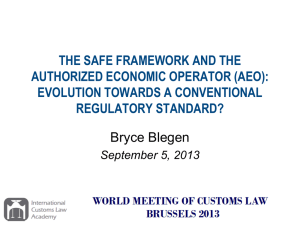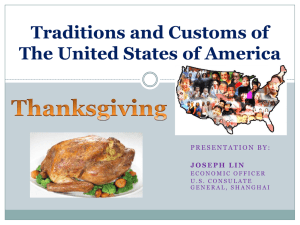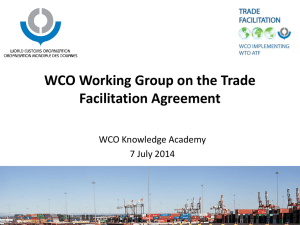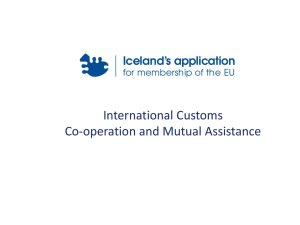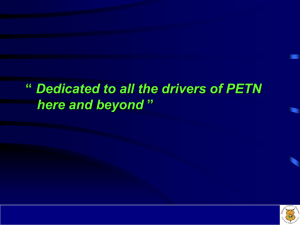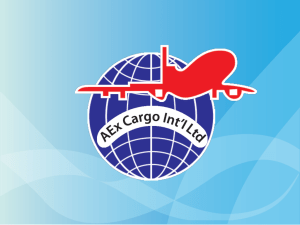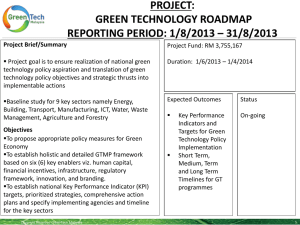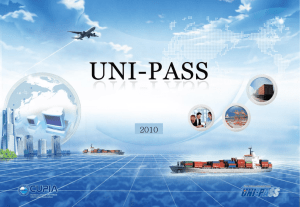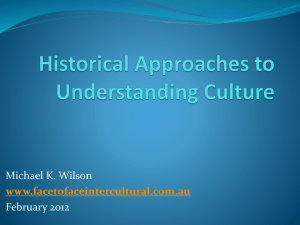Report - Who We Are
advertisement
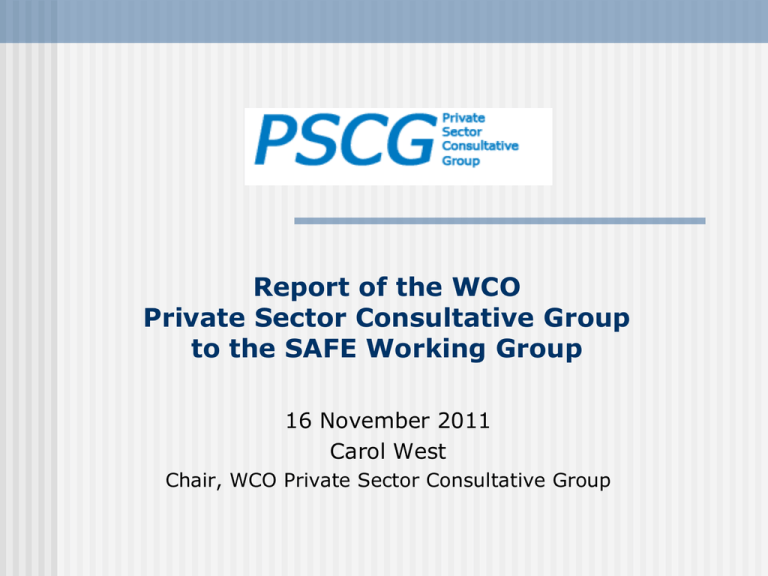
Report of the WCO Private Sector Consultative Group to the SAFE Working Group 16 November 2011 Carol West Chair, WCO Private Sector Consultative Group Participants in 21st PSCG Meeting, 14-15 November 2011 AAEI APL Boeing BP De La Rue International Deutsche Post DHL FedEx FIATA Fonterra GEA GM Hutchison Port Holdings IAPH IATA IBM ICC IFCBA IRU Limited Brands Microsoft Renault Nissan OPORA Russia Pfizer Global Manufacturing Samsung Electronics Company WSC Highlights of 21st PSCG Meeting Air cargo security SAFE Review AEO Template Time limits PSCG Roadmap review Globally Networked Customs Financial recovery: business views Air Cargo Security PSCG is following with great interest and concern the discussions on air cargo security at both WCO and ICAO While we appreciate the initiatives of the two organizations to work more closely together, we are concerned that the cooperation and coordination has not yet led to a common and joint approach to aviation security Air Cargo Security (continued) It is of utmost importance that there is a single definition of high risk cargo for aviation security that drives the determination of a “do not load” message prior to the departure of the aircraft, preventing a real and immediate threat to life and safety We encourage the WCO and ICAO to strengthen coordination efforts to arrive at a common high risk cargo definition for aviation security purposes SAFE Review: AEO Template Transformation of PSCG template, work is almost complete Appreciate contribution of WCO members as well as the private sector in raising awareness of the importance of a harmonized approach to AEO standards and programs PSCG priorities remain: the recognition of related companies’ AEO status in a single country with a single application for all legal entities, and mutual recognition of AEO status between countries Time Limits PSCG congratulates the working group and its facilitator for preparing an excellent report, ensuring that all points of view are on the table In our March report, we said the distinction between cargo reporting and goods declaration is important to maintain and a fundamental question is “at what point is the information most authentic and who is best able to provide it?” Time Limits (continued) PSCG is not concerned that consensus hasn’t yet been reached on this complex subject, we understand this is not an easy task PSCG recommends that time be taken to learn from the experience of current pilot projects, which are constructively engaging the private sector, so that a practical, effective and sustainable solution can be found PSCG Roadmap Review Consensus that the time is right for a review of the PSCG Roadmap PSCG reaffirms our strong commitment to contribute to the work of the SAFE Working Group – we value the unique opportunity to partner with the WCO and its members and add value to all initiatives under SAFE. This is our first priority. PSCG Roadmap Review (continued) Customs in the 21st century: our objective is to raise awareness of policy makers that Customs administrations are in a unique position to facilitate legitimate global trade We support initiatives that enhance transparency, efficiency, predictability, accountability, simplification, standardization and coordination of border management. PSCG Roadmap Review (continued) Capacity Building: our context is how trade can better assist the process of trade facilitation and support Customs in the faster movement and clearance of goods, and we expect that some of this work will relate back to SAFE and implementation of AEO programmes and benefits A cross-cutting priority for the Roadmap is Customs-business partnership In all our work, we recognize the importance of the positive impacts of our recommendations on SMEs Globally Networked Customs Thanks to Mike Weeding and S.P. Sahu for a comprehensive and timely briefing There is some PSCG disappointment that original scope has been narrowed to exclude other government agencies, even though the identification of utility blocks has been extensive PSCG members agreed that problems at the border are most often not Customs, but requirements of other government agencies and we would hope for renewed efforts for an integrated solution under GNC which includes those agencies Financial Recovery PSCG usually reports to the Policy Commission on the global financial recovery, always an agenda item at our meetings PSCG members agreed that there is increasing importance of emerging markets/economies Financial Recovery (continued) Continued concern with the Eurozone crisis PSCG has observed continued Customs institutional knowledge drain due to limited resources in difficult times. We are aware of the challenges and the need for governments to invest in Customs knowledge, management and people. As always. . . We welcome your comments! www.wcopscg.org cwest@ifcba.org
